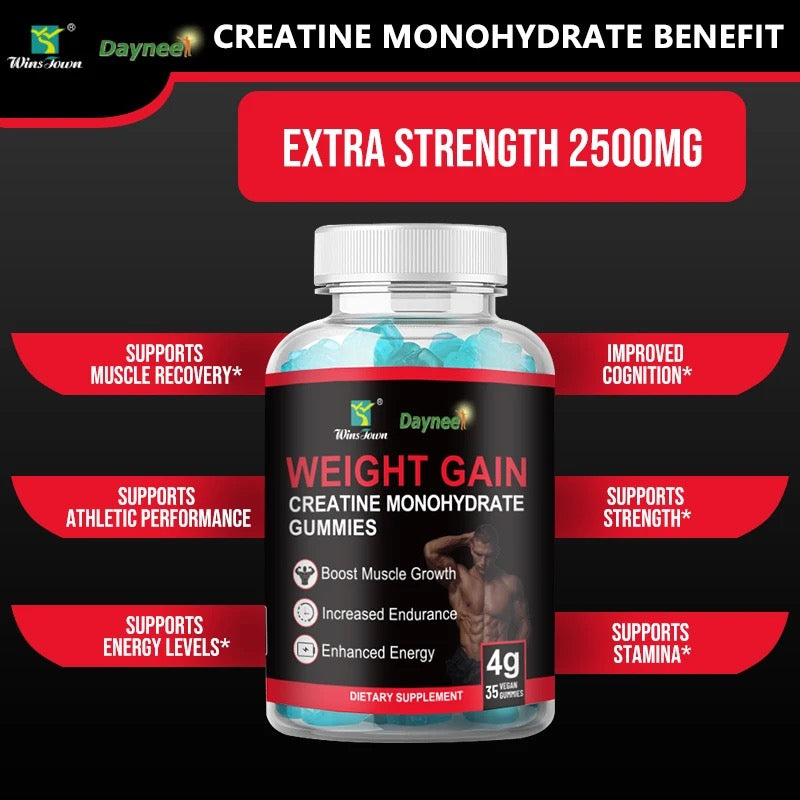Creatine Monohydrate Fundamentals Explained
Table of ContentsThe Definitive Guide for Creatine MonohydrateCreatine Monohydrate - TruthsHow Creatine Monohydrate can Save You Time, Stress, and Money.Creatine Monohydrate Things To Know Before You Get ThisRumored Buzz on Creatine MonohydrateThe Single Strategy To Use For Creatine Monohydrate
In light of what the studies say, should joggers drop creatine into their diets?'Creatine has been shown to improve muscle stamina and power output, which can translate to boosted running performance,' he states. 'It might assist joggers to produce even more pressure with each stride and sprint at higher rates.' He also says that, since creatine supplementation can improve muscular tissue endurance, it might allow runners to preserve a higher intensity for longer.
'Creatine can assist to boost glycogen storage in the muscle mass, which acts as an essential fuel source during endurance tasks like range running. This can delay the beginning of fatigue and boost total endurance performance.' 'Creatine is generally considered safe when made use of as directed and in suitable dosages. Some people may experience certain side effects,' states Aitken.'Lasting researches suggest that there are no negative impacts related to supplementing with creatine in healthy and balanced individuals,' adds Roberts.

Some Known Details About Creatine Monohydrate
Below are the advantages and disadvantages of this preferred supplement so you can make a decision if it's the appropriate fit for your regimen. In the substantial sea of supplements and vitamins assuring to boost your efficiency and enhance your exercise results, there are few that have been as extensively investigated as creatineand also fewer that live up to their cases.
It's saved in skeletal muscular tissue and help in the resynthesis of adenosine triphosphate (or ATP), which provides energy for short-term, maximum-effort contraction. It's this procedure that offers Rodonis the extra boost he needs for cranking out those last challenging reps. "Creatine can be utilized as a power source for the highest-intensity initiatives," claims Christie.
Additionally, research studies have shown that creatine can quicken recuperation by minimizing swelling and increasing glycogen storage space in muscular tissues. Considering that extreme workout depletes shops of glycogenyour body's primary resource of energyrebuilding these stores quickly advertises recuperation. In another study, creatine was revealed to boost performance throughout durations of raised training strength that might otherwise cause overtraining.
In aging populations, creatine has really been shown to boost cognitive function and, when combined with resistance training, minimize bone loss. In the hundreds of researches carried out on creatine over the years, the only substantial adverse effects that's been reported is a percentage of weight gain. Since creatine increases water retention and pulls water into muscles, a few of this weight gain is because of a boost in water weight while some might be because of rises in lean muscular tissue mass.
A Biased View of Creatine Monohydrate
If you want to take both supplements, it's considered secure to take them together for the purpose of convenience.
This packing stage was then complied with by a common dose of 3 to 5 grams per day for upkeep. While a creatine packing stage can be used to boost books swiftly, taking the upkeep dose has actually been shown to inevitably increase creatine levels by the same amount (over 4 weeks rather than one) without the gastrointestinal negative effects sometimes seen when taking bigger dosages.
He just takes 5mg of creatine daily. Creatine Monohydrate. "I think people overcomplicate this," he states of disciplined creatine packing stages. "It's more about the uniformity of having it every day." here There's ample study to support taking creatine as a dietary supplement to power your workouts pop over to these guys and offer you the energy for high-intensity training.
For many, it's safe to take a modest dosage (3 to 5 grams) of creatine daily. Staying consistent with your creatine intake is crucial to seeing results. The details offered in this article is for instructional and informational purposes just. Individuals with pre-existing health and wellness problems, injuries, or issues ought to talk to their health care supplier before attempting a new workout or nutrition regimen.
What Does Creatine Monohydrate Do?
Creatine is one of the top supplements for acquiring muscle and boosting efficiency in the gym. The body can create creatine naturally from the amino acids glycine and arginine.
Supplementing with creatine increases kept phosphocreatine. Keep reading to discover more about just how much creatine you need to take and when you can expect to see outcomes.
:max_bytes(150000):strip_icc()/Health-BenefitsofCreatine-Vertical-V5-10dbc94af7324b37aae2ab35c98b87a8.jpg)
This filling phase was then followed by a conventional dosage of 3 to 5 grams per day for upkeep. While a creatine loading phase can be used to enhance gets rapidly, taking the maintenance dosage has actually been shown to ultimately elevate creatine levels by the same amount (over 4 weeks as opposed to one) without the intestinal side impacts often seen when taking bigger dosages.
The smart Trick of Creatine Monohydrate That Nobody is Talking About
He just takes 5mg of creatine daily. "I think try this site people overcomplicate this," he says of disciplined creatine filling stages. "It's more concerning the consistency of having it each and every single day." There's enough study to sustain taking creatine as a nutritional supplement to power your exercises and offer you the power for high-intensity training.

Creatine is one of the leading supplements for acquiring muscular tissue and boosting efficiency in the health club. The body can produce creatine naturally from the amino acids glycine and arginine.
The Buzz on Creatine Monohydrate
Supplementing with creatine enhances saved phosphocreatine. Keep reading to find out more concerning how much creatine you must take and when you can expect to see outcomes.